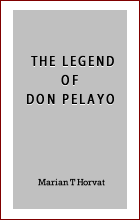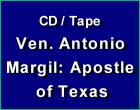Stories & Legends
 |
 |
 |
 |
 |
 |
 |
The Poor Widow’s Gold Coin
Towards the end of the 10th century, the Bishop of Prague, Adalbert, was invited by King Boleslaw of Poland to convert the Prussians, a pagan tribe living north of Poland. Bishop Adalbert accordingly set out with a few monks to preach the Gospel to the Prussians.
As he approached the first Prussian settlement, a large cluster of huts still some distance away, he noticed a small cottage standing among trees, quite alone. He was about to enquire of his monks if they knew to whom it belonged, when the owner, a poor widow, came forth and offered the Bishop rest and refreshment in her humble dwelling.
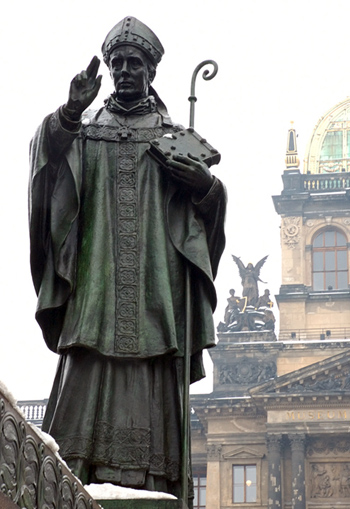 The Bishop declined, saying that he must press on for it was growing late. He accepted, however, a cup of milk from the woman and gave her his blessing. He asked if she did not fear to live so near the settlement of a wild and pagan tribe, but she replied that because of her poverty they did not molest her, for, she added, the Prussians were a grasping people and she begged the Bishop that he beware of them.
The Bishop declined, saying that he must press on for it was growing late. He accepted, however, a cup of milk from the woman and gave her his blessing. He asked if she did not fear to live so near the settlement of a wild and pagan tribe, but she replied that because of her poverty they did not molest her, for, she added, the Prussians were a grasping people and she begged the Bishop that he beware of them.
The little party continued and soon reached the edge of the Prussian settlement. The tribesmen came out, heavily armed, and stared at the travelers, making threatening gestures and shouting. The Bishop, undaunted, held up his Cross, inlaid with precious stones.
But this did not have the effect on the Prussians that he had hoped. Instead of being filled with reverence for the holy symbol of Chrisitanity, the Prussians saw it as an object of value and became greatly excited. Crowding around the Bishop, they eagerly stretched forth their hands to grasp it.
Adalbert ordered them back in a firm voice, at the same time returning the Cross that hung on a gold chain to rest on his bosom. This angered the Prussians and they pressed closer, seeking to tear the Cross and chain from Adalbert’s neck.
The Bishop, striving to keep his Cross from irreverent, pagan hands, was badly manhandled. All the efforts of his monks to protect him were in vain. The Prussians became increasingly angry and one, bolder than the rest, lifted his club and struck Adalbert down.
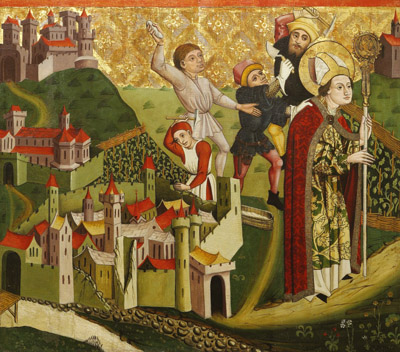 The other pagans fell upon him, and in a few moments the Bishop had breathed his last. The monks fled in terror and returned to Gniezno, where they apprised King Boleslaw of what had happened.
The other pagans fell upon him, and in a few moments the Bishop had breathed his last. The monks fled in terror and returned to Gniezno, where they apprised King Boleslaw of what had happened.
The Polish King was filled with anger and dismay. He shuddered to think what would happen to the body of Adalbert if it were left with the pagan Prussians. Moreover, it was essential that the Bishop should receive a Catholic burial. He sent ambassadors to the Prussians at once to demand the return of Adalbert’s body.
The ambassadors set out and, travelling as quickly as they could, soon reached the spot where Adalbert had been put to death. The Prussians, who had watched their arrival with some curiosity, now came forward and, with some civility, enquired their will.
The ambassadors demanded the body of Adalbert, Bishop of Prague, in the name of King Boleslaw of Poland.
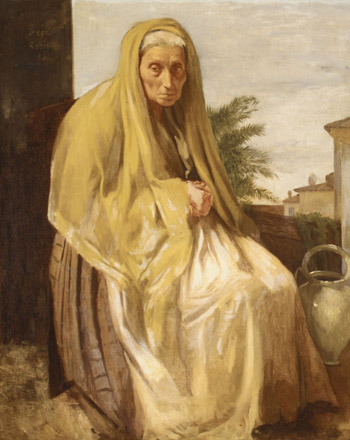
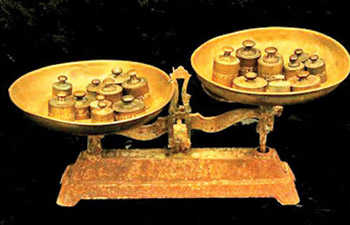 But the Prussians were not going to part with their victim easily. They demanded the weight of the Bishop’s body in gold, saying that otherwise they would not give it up. The ambassadors had some gold, although in no great quantity, but they trusted in God to save the body of His servant from desecration.
But the Prussians were not going to part with their victim easily. They demanded the weight of the Bishop’s body in gold, saying that otherwise they would not give it up. The ambassadors had some gold, although in no great quantity, but they trusted in God to save the body of His servant from desecration.
Two large baskets were brought and were placed on either end of a long plank that lay athwart a log. Into one basket was laid the body of Adalbert; into the other, the gold that the envoys had brought. But the weight of the body was far greater and the basket with the Saint's body remained firmly on the ground.
The ambassadors took off their jewels, chains, rings and ornaments, and threw them all into the basket, but still there was not enough.
Then, when all hope seemed lost, a poorly-clad woman timidly approached. It was the same widow who had given the Bishop a cup of milk as he had journeyed towards the Prussian settlement. Now she came forward holding in her hand a tiny gold coin. It was the only treasure the poor woman possessed and had been part of her dowry – the only part that remained to her.
She placed it in the basket, very timidly, as though ashamed of her humble offering. The Prussians began to laugh. But their laughter changed to amazement when the basket containing the gold began to sink slowly down until it reached the level of that containing the Bishop’s body. Then it stayed quite still; the balance was exact.
The Prussians were surprised, a little afraid, and deeply impressed. They soon became convinced that they were not all-powerful as they had thought, and were converted.

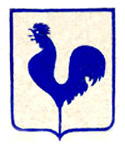
As he approached the first Prussian settlement, a large cluster of huts still some distance away, he noticed a small cottage standing among trees, quite alone. He was about to enquire of his monks if they knew to whom it belonged, when the owner, a poor widow, came forth and offered the Bishop rest and refreshment in her humble dwelling.

The great missionary Adalbert, the Patron Saint of Poland
The little party continued and soon reached the edge of the Prussian settlement. The tribesmen came out, heavily armed, and stared at the travelers, making threatening gestures and shouting. The Bishop, undaunted, held up his Cross, inlaid with precious stones.
But this did not have the effect on the Prussians that he had hoped. Instead of being filled with reverence for the holy symbol of Chrisitanity, the Prussians saw it as an object of value and became greatly excited. Crowding around the Bishop, they eagerly stretched forth their hands to grasp it.
Adalbert ordered them back in a firm voice, at the same time returning the Cross that hung on a gold chain to rest on his bosom. This angered the Prussians and they pressed closer, seeking to tear the Cross and chain from Adalbert’s neck.
The Bishop, striving to keep his Cross from irreverent, pagan hands, was badly manhandled. All the efforts of his monks to protect him were in vain. The Prussians became increasingly angry and one, bolder than the rest, lifted his club and struck Adalbert down.

The murder of St. Adalbert by Prussian pagans
The Polish King was filled with anger and dismay. He shuddered to think what would happen to the body of Adalbert if it were left with the pagan Prussians. Moreover, it was essential that the Bishop should receive a Catholic burial. He sent ambassadors to the Prussians at once to demand the return of Adalbert’s body.
The ambassadors set out and, travelling as quickly as they could, soon reached the spot where Adalbert had been put to death. The Prussians, who had watched their arrival with some curiosity, now came forward and, with some civility, enquired their will.
The ambassadors demanded the body of Adalbert, Bishop of Prague, in the name of King Boleslaw of Poland.

The poor widow's gold coin gave the needed weight

Two large baskets were brought and were placed on either end of a long plank that lay athwart a log. Into one basket was laid the body of Adalbert; into the other, the gold that the envoys had brought. But the weight of the body was far greater and the basket with the Saint's body remained firmly on the ground.
The ambassadors took off their jewels, chains, rings and ornaments, and threw them all into the basket, but still there was not enough.
Then, when all hope seemed lost, a poorly-clad woman timidly approached. It was the same widow who had given the Bishop a cup of milk as he had journeyed towards the Prussian settlement. Now she came forward holding in her hand a tiny gold coin. It was the only treasure the poor woman possessed and had been part of her dowry – the only part that remained to her.
She placed it in the basket, very timidly, as though ashamed of her humble offering. The Prussians began to laugh. But their laughter changed to amazement when the basket containing the gold began to sink slowly down until it reached the level of that containing the Bishop’s body. Then it stayed quite still; the balance was exact.
The Prussians were surprised, a little afraid, and deeply impressed. They soon became convinced that they were not all-powerful as they had thought, and were converted.

Adapted from Old Polish Legends by F. C. Anstruther,
NY:Hippocrene Books, Inc., 1991, pp. 45-48,
Posted April 24, 2021
NY:Hippocrene Books, Inc., 1991, pp. 45-48,
Posted April 24, 2021





